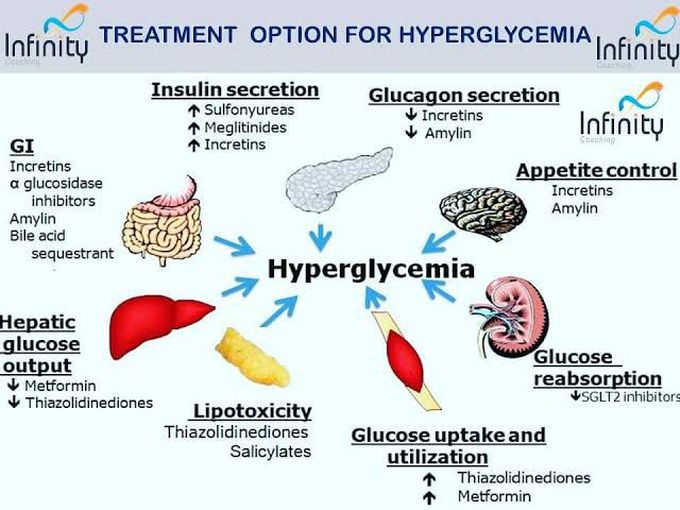


How to treat Hypergylcemia?
If you've been diagnosed with diabetes and you have symptoms of hyperglycaemia, follow the advice your care team has given you to reduce your blood sugar level. If you're not sure what to do, contact your GP or care team. You may be advised to: change your diet – for example, you may be advised to avoid foods that cause your blood sugar levels to rise, such as cakes or sugary drinks drink plenty of sugar-free fluids – this can help if you're dehydrated exercise more often – gentle, regular exercise such as walking can often lower your blood sugar level, particularly if it helps you lose weight if you use insulin, adjust your dose – your care team can give you specific advice about how to do this You may also be advised to monitor your blood sugar level more closely, or test your blood or urine for substances called ketones (associated with diabetic ketoacidosis). Until your blood sugar level is back under control, watch out for additional symptoms that could be a sign of a more serious condition

